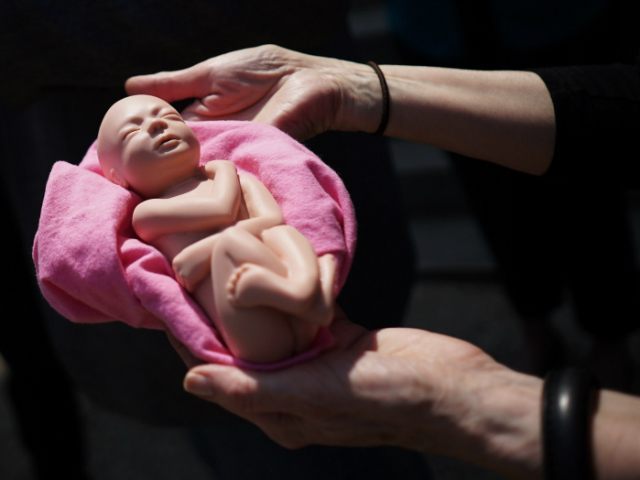A three-judge panel of the U.S. Court of Appeals for the Eighth Circuit upheld a lower court’s ruling that blocks multiple Arkansas pro-life laws, including bans on late-term abortions and those based on sex of the unborn baby and a prenatal diagnosis of Down syndrome.
“As the district court recognized, the law governing the constitutionality of two of the three statutes at issue — Act 493 and Act 619 — though obviously subject to change in the future, is well established in this Circuit today,” the three-judge panel said in Tuesday’s ruling in the case of Little Rock Family Planning Services v. Leslie Rutledge.
The panel continued:
The Supreme Court has repeatedly stated that its pre-viability rule is categorical: “Regardless of whether exceptions are made for particular circumstances, a State may not prohibit any woman from making the ultimate decision to terminate her pregnancy before viability.” … We have applied the rule categorically, even while recognizing “that viability varies among pregnancies and that improvements in medical technology will both push later in pregnancy the point at which abortion is safer than childbirth and advance earlier in gestation the point of fetal viability.”
Arkansas Attorney General Leslie Rutledge (R) criticized the ruling, which blocked enforcement of legislation banning abortions past the 18th week of pregnancy.
“Following the 8th Circuit’s decision against Arkansas’ late-term abortion ban and Down-syndrome-selection ban, I plan to seek further review of this decision in order to uphold Arkansas’s laws which protect the lives of the unborn and the health of the mothers,” she said, according to Catholic News Agency.
Shame of a Nation: A federal appeals court panel affirmed a lower court's ruling that Ohio cannot ban abortion of Down syndrome babies. https://t.co/LSPiAErDK1
— Breitbart News (@BreitbartNews) October 12, 2019
The Associated Press (AP) also reported:
“The Supreme Court must limit and ultimately overturn Casey and I plan to do everything in my power to see that they do,” Rutledge, a Republican, said in a statement, referring to the 1992 Planned Parenthood v. Casey decision, which prohibited regulations that created an “undue burden” on women seeking an abortion.
In December, Rutledge released a statement following the announcement that pro-life organization Americans United for Life had ranked Arkansas as the most pro-life state in America. The attorney general said:
It is an incredible day in the State of Arkansas to be named the most pro-life state in America by Americans United for Life. This has not been an easy road, but it is the most important fight we could take on and win. My office has successfully defended and won a number of pro-life cases, and as long as I am Attorney General, I will ensure we continue to fight for the lives and the rights of the unborn. Even with this remarkable announcement our work continues and I promise I will keep fighting wholeheartedly to defend our pro-life laws.
The American Civil Liberties Union (ACLU), which joined with Planned Parenthood to challenge the Arkansas pro-life laws, proclaimed “victory” as a result of the ruling.
“This ruling is a victory for all Arkansans and a decisive repudiation of Arkansas politicians’ ongoing crusade to deny people the right to make their own medical decisions and force them to continue pregnancies against their will,” said Holly Dickson, executive director of the ACLU of Arkansas, according to AP.
In an interview with the Washington Post in late December, Planned Parenthood CEO Alexis McGill Johnson criticized earlier attempts to downplay the number of abortions performed at Planned Parenthood.
“I think when we say, ‘It’s a small part of what we do,’ what we’re doing is actually stigmatizing it,” she said. “Like: It’s really not a big deal that Planned Parenthood does this. We are a proud abortion provider. We believe that abortion is health care.”

COMMENTS
Please let us know if you're having issues with commenting.